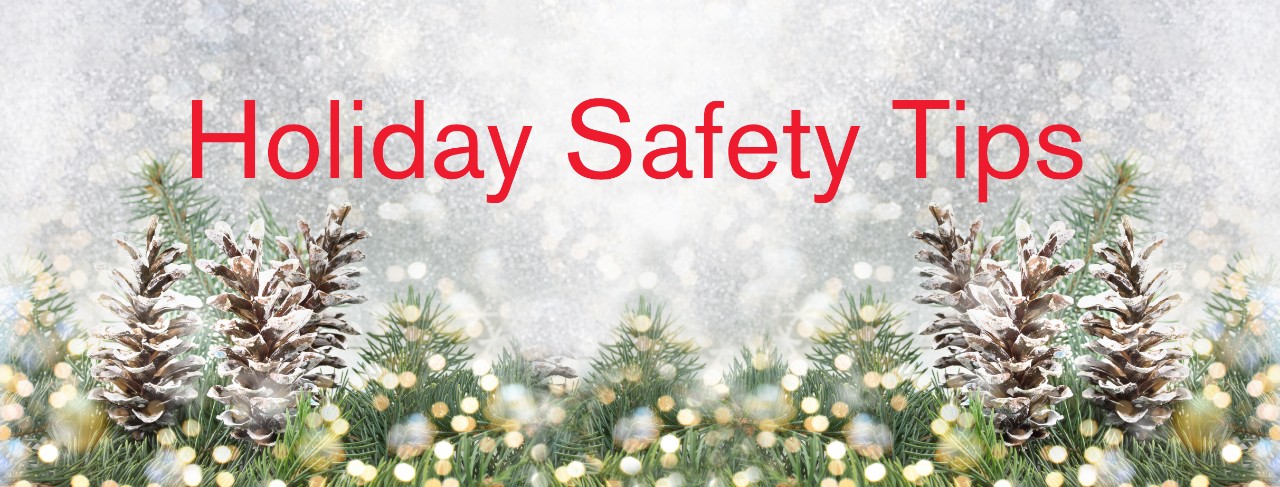Christmas and New Year’s Eve are right around the corner, and while millions of people are securing plans to take part in the upcoming festivities, Red Cross workers in the Eastern Pennsylvania Region have already been working around the clock to respond to what has been an extremely busy month so far.
Across our 17 counties, our volunteer-led disaster teams responded to at least 40 fires in the seven days between December 7th and 14th. Because of this unusually high number of home fires, the American Red Cross is urging everyone more than ever to follow the steps below to help stay safe this holiday.
HOLIDAY DECORATION SAFETY
Decorations like trees, lights and candles increase the risk of home fires during the holidays—with Christmas, New Year’s Eve and New Year’s Day being the top three days for home candle fires, according to the National Fire Protection Association. You can follow these 10 simple safety tips as you put up your last-minute decorations:
- Check all holiday light cords to make sure they aren’t frayed or broken. Don’t string too many strands of lights together—no more than three per extension cord.
- Keep Christmas trees away from fireplaces, radiators and other sources of heat.
- If you have a live tree, make sure it’s fresh and water it to keep it fresh. Bend the needles up and down to make sure no needles fall off.
- Don’t forget to turn off all holiday lights when going to bed or leaving the house.
- Keep children, pets and decorations away from candles.
COOKING SAFETY
- If you are frying, grilling or broiling food, never leave it unattended—stay in the kitchen. If you leave the kitchen for even a short period of time, turn off the stove. Unattended cooking is the leading cause of cooking fires.
- If you’re simmering, baking, roasting or broiling food, check it regularly.
- Use a timer to remind yourself that the stove or oven is on
- .Keep anything that can catch fire—pot holders, oven mitts, wooden utensils, paper or plastic bags, food packaging, towels or curtains—away from your stove, oven or any other appliance in the kitchen that generates heat.
- Always check the kitchen before going to bed or leaving home to make sure all stoves, ovens, and small appliances are turned off.
HIGHWAY SAFETY
Each year, millions of people drive to spend the holidays with family and friends—making it one of the busiest times for road traffic. If you’re planning to travel by car, follow these safety tips:
- Pack an emergency preparedness kit, supplies and a first aid kit in the trunk.
- Share travel plans with a family member or friend.
- Check the weather before departing and along your route. Plan for travel around any storms that may be coming.
- Give your full attention to the road. Avoid distractions such as cell phones.
- Make frequent stops. During long trips, rotate drivers. If you’re too tired to drive, stop and get some rest.
THE FLU AND YOUR TRAVEL PLANS
If public transportation is part of your travel plans, remember it’s flu season. From luggage to seats, everything that you touch is likely touched by someone else. Follow these tips to help avoid the spread of germs.
- Handle your own belongings.
- Wash your hands often with soap and water.
- Carry hand sanitizer and anti-bacterial wipes with you. You can use them to wash your hands or wipe down surfaces, such as armrests.
- Bring your own pillows and blankets. They can act as a shield against the seat itself.
- Avoid touching your face or eyes. If you have to cough or sneeze, do so into a tissue or your sleeve.
